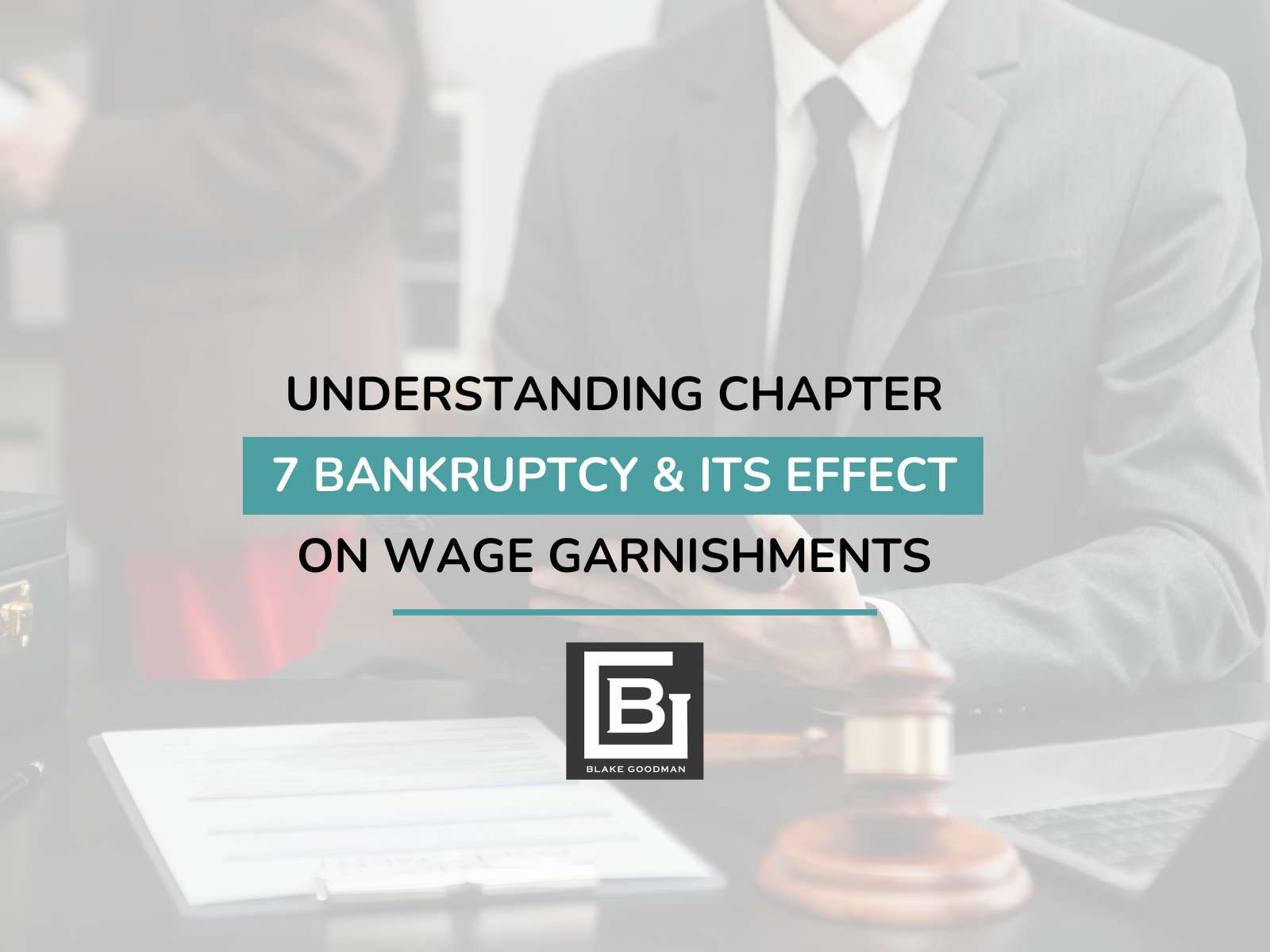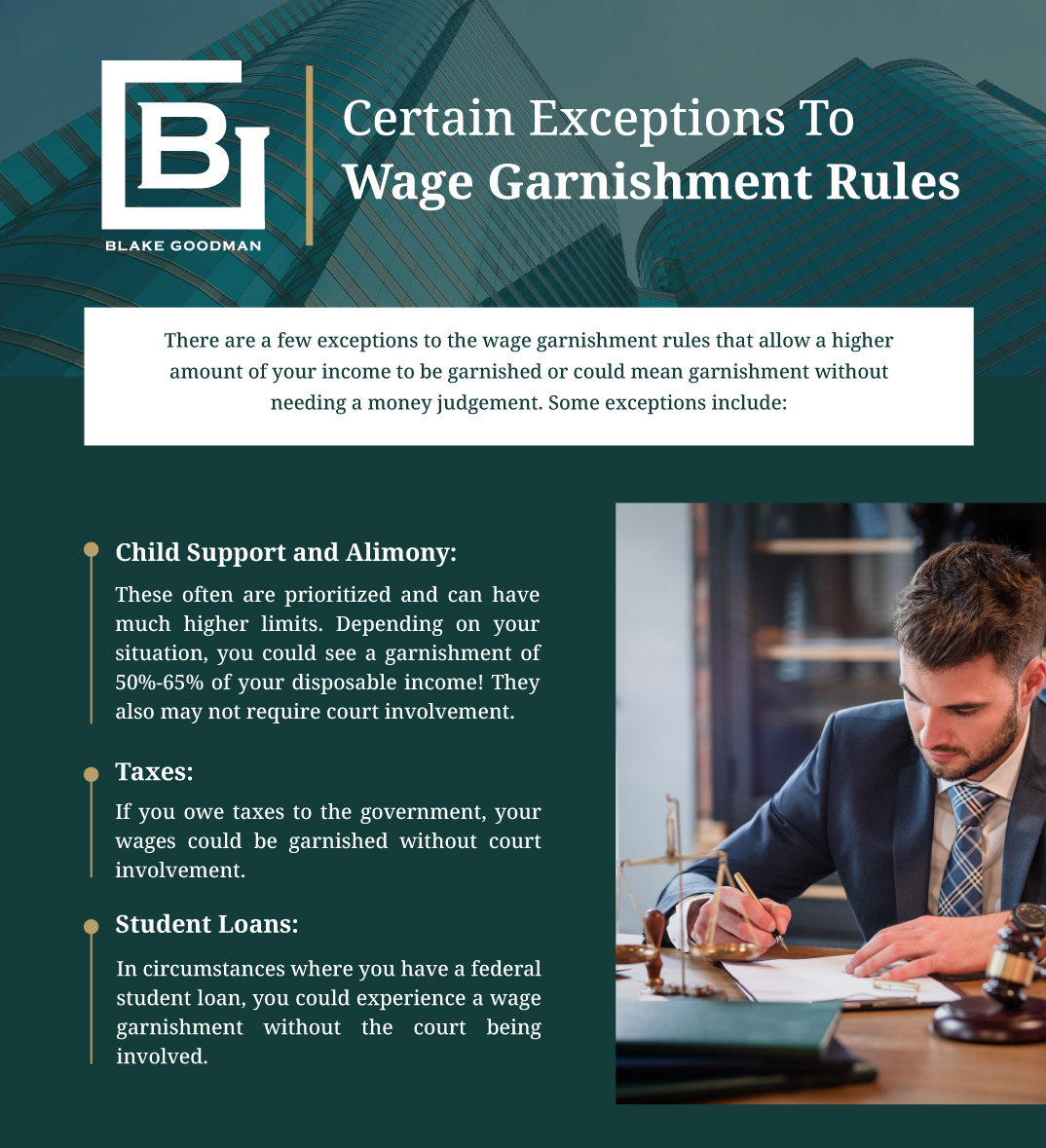Effective Steps To Prevent Wage Garnishment & Protect Your Income
When you have a significant debt that you are unable to pay, you may be facing wage garnishments. This action can be devastating as it connects the creditor directly with your employer to remove a part of your disposable income. In most cases, wage garnishment will not be a surprise since creditors need a money judgment first.
There are some actions you can take to avoid wage garnishment, such as negotiating a settlement with the creditor or setting up a monthly payment plan. If these are not possible, a wage garnishment bankruptcy lawyer in Honolulu can help you file for Chapter 7 bankruptcy, which triggers an automatic stay, halting all contact and any action from creditors.
What Is Wage Garnishment & How It Affects Your Paycheck

Once they have that judgment, they can ask the court for permission — called a writ of garnishment — to take money directly from your paycheck. If the court approves, a specific amount will be set, and that amount will be deducted from your after-tax income.
In Hawaii, there are specific laws that limit how much of your paycheck a creditor can take.
A creditor can take whichever amount is smaller between these two:
- 25% of your disposable wages, or
- The amount that remains after subtracting your disposable income from 30 times the federal minimum wage.
In simpler terms, the court looks at both calculations and chooses the one that takes less money from your paycheck.
Stopping Wage Garnishment With Chapter 7 Bankruptcy
If you’re facing large amounts of debt that you’re unable to pay and creditors threatening to garnish your wages, you should consider Chapter 7 bankruptcy. This type of bankruptcy, also known as liquidation bankruptcy, takes all of your non-exempt assets and sells them to pay off your debts. From there, your debts are discharged and you can start afresh.
As soon as you file, something called an automatic stay goes into effect. This immediately stops all creditors from taking any actions against you, including wage garnishments. Even if your wages are currently being garnished, any future garnishment will stop.
This stay remains active throughout your bankruptcy process. If you’ve filed before, it may be limited or denied — that’s why consulting a bankruptcy lawyer ensures you understand your options and protections.
Certain Exceptions To Wage Garnishment Rules
There are a few exceptions to the wage garnishment rules that may allow creditors to take more of your income or even garnish your wages without first getting a court judgment. It’s important to understand these exceptions and how your bankruptcy lawyer can help. Some of the most common ones include:
- Child Support and Alimony: These are often prioritized and can have much higher limits. Depending on your situation, you could see a garnishment of 50%-65% of your disposable income. In many cases, these garnishments also don’t require court approval.
- Taxes: If you owe taxes to the government, your wages could be garnished without court involvement.
- Student Loans: In circumstances where you have a federal student loan, you could experience a wage garnishment without the court being involved.
Can You Protect Yourself From Wage Garnishment?
The best way to stop wage garnishment from happening to you is to work with a creditor before they sue. You could try and set up a payment plan or a settlement. In Hawaii you can also claim exemptions that prevent certain wages and accounts from garnishment.
However, if none of these options are possible, another path you could explore is filing for Chapter 7 bankruptcy. Talk with a bankruptcy lawyer to see if filing would be right for you. If so, bankruptcy can stop wage garnishments from happening.
How Employers Know To Stop The Wage Garnishment

However, sometimes it can take a week or so for the creditor to receive notification. In the meantime, you may experience another garnishment action. It can be helpful to connect with a bankruptcy lawyer who will reach out and inform all creditors for you to stop actions as quickly as possible.
Wage Garnishments At The Conclusion Of Chapter 7 Bankruptcy
What happens at the end of Chapter 7 bankruptcy when automatic stays are lifted? This is an important question since bankruptcy does not last forever. In most cases, any remaining debt that is owed at the end of bankruptcy will be discharged. This means all wage garnishments will be erased and the creditor will no longer contact you.
Certain debts, however, may not be discharged or sometimes bankruptcy cases are dismissed before they are concluded. In these cases, your wage garnishment will begin again. Working with a bankruptcy lawyer throughout the bankruptcy process can help ensure this does not happen.
Consult Our Trusted Bankruptcy Lawyers To Stop Your Wage Garnishment
Don’t face your financial struggles alone, reach out to our Honolulu bankruptcy lawyers at Blake Goodman P.C., where we will take as much time needed to understand your unique situation and develop a solid strategy to move forward. Wage garnishment can be intimidating, but our experienced lawyers can help.
Contact us today and we’ll do everything in our power to set you up toward a brighter financial future.

Email: blake@debtfreehawaii.com
Website: https://www.debtfreehawaii.com/
HONOLULU OFFICE
900 Fort Street MallSuite 910
Honolulu, HI 96813
Phone: (808) 517-5446
AIEA OFFICE
98-1238 Ka'ahumanu StSuite 201
Pearl City, HI 96782
Phone: (808) 515-3441
KANEOHE OFFICE
46-005 Kawa StSuite 206
Kaneohe, HI 96744
Phone: (808) 515-3304
MAUI OFFICE
220 Imi Kala St. #203BWailuku, HI 96793
Phone: (808) 515-2037

Blake Goodman received his law degree from George Washington University in Washington, D.C. in 1989 and has been exclusively practicing bankruptcy-related law in Texas, New Mexico, and Hawaii ever since. In the past, Attorney Goodman also worked as a Certified Public Accountant, receiving his license form the State of Maryland in 1988.


